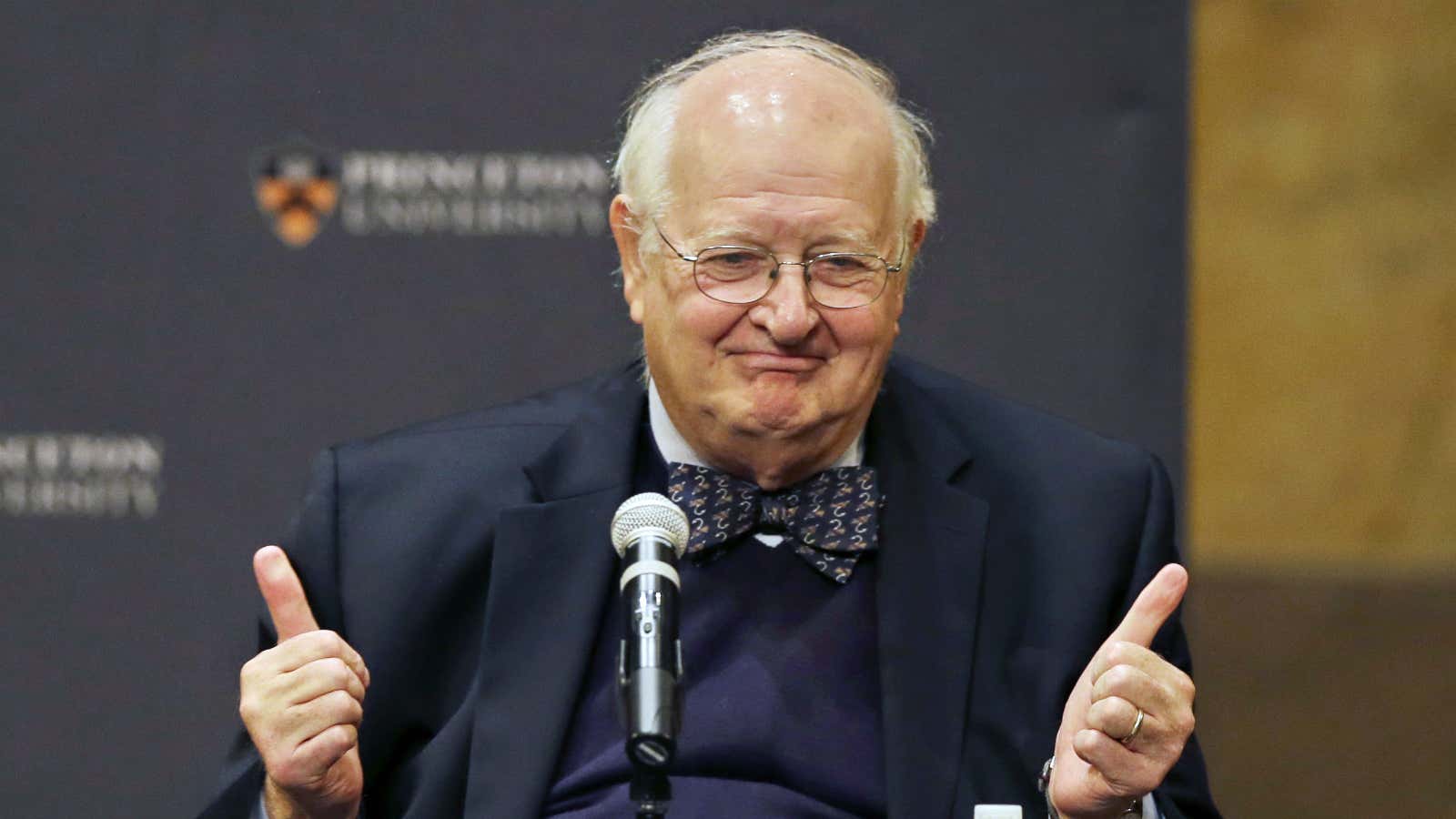Among the many kind words used to congratulate Angus Deaton, there is Harvard professor Amitabh Chandra’s description of the Nobel prize winner: “Angus Deaton is the Obi-Wan Kenobi of Economics.”
“Breathtaking range of work in poverty, health, healthcare, wellbeing, methods…,” Chandra tweeted, drawing a parallel with the iconic Jedi master from Star Wars. On Oct. 12, the Nobel prize in economics—or the Sveriges Riksbank Prize in Economic Sciences in Memory of Alfred Nobel, to be precise—was awarded to Deaton “for his analysis of consumption, poverty, and welfare”.
While Deaton’s work covers a wide range of issues, a significant component is focused on examining India and its poverty.
“My current research focuses on the determinants of health in rich and poor countries, as well as on the measurement of poverty in India and around the world,” reads his online biography at Princeton University, where he has been a professor since 1983 (pdf).
“Great Scholar, combining theory with empirics. Cares deeply about India. Searingly insightful on foreign aid,” India’s chief economic advisor Arvind Subramanian tweeted on Monday.
Since the 1980s, Deaton has authored over a dozen papers and publications on India, including with Belgium-born Indian development economist Jean Drèze.
“I think that India is very close to Angus’s heart and that some of his most significant work relates to India. In fact, much of his work is inspired or influenced by India in one way or another, even when it pertains to other countries, or to no country in particular,” Drèze told Quartz in an emailed interview.
Drèze first met Deaton at the Indian Statistical Institute, Bangalore around 1981, when the former was working on his PhD thesis. “He listened patiently to my presentation and then put my work in an entirely new light within a few minutes,” Drèze recalled. ”Later on, Angus often used me as a sort of sounding board for his work on India—he has a healthy habit of taking serious interest in the real world before crunching data.”
In 2009, for instance, Deaton partnered with Drèze to study the nutrition and calorie intake of Indians. The research (pdf) was based on the premise that the average calorie intake in the country had dropped in the last 25 years.
The authors wrote that anthropometric—the study of human body measurement—indicators of nutrition in India were among the worst in the world. But their research concluded that the “nutrition situation in India is full of puzzles”. And a large part of it can be solved with better nutrition monitoring arrangements, the study said.
In all, as the Nobel committee described (pdf), “Deaton championed the use of household survey data in developing countries, especially data on consumption, to measure living standards and poverty.”
“Deaton’s work has important implications not only for the substance of economic policy in India, but also for the process of policy-making,” Drèze explained.
“On the process, Angus Deaton is very committed to the idea that public policy should be an outcome of democratic practice, as opposed, say, to professional expertise or randomized controlled trials,” he added. “That, again, has significant implications since the Indian government is constantly trying to insulate economic policy from public debate.”
Nonetheless, the impact of Deaton’s work may have already percolated into Indian policy-making.
“Deaton found that there were a lot more poor people in rural areas of India than previously thought,” Ingvild Almas, associate professor at the Norwegian School of Economics, told the Associated Press. “That has affected India’s subsidy system for the poor, which allows them to buy necessities. Households that were not defined as poor before can now be reached with these policies, and that is a direct result of Deaton’s research.”
